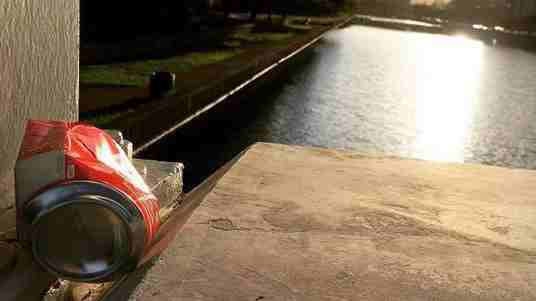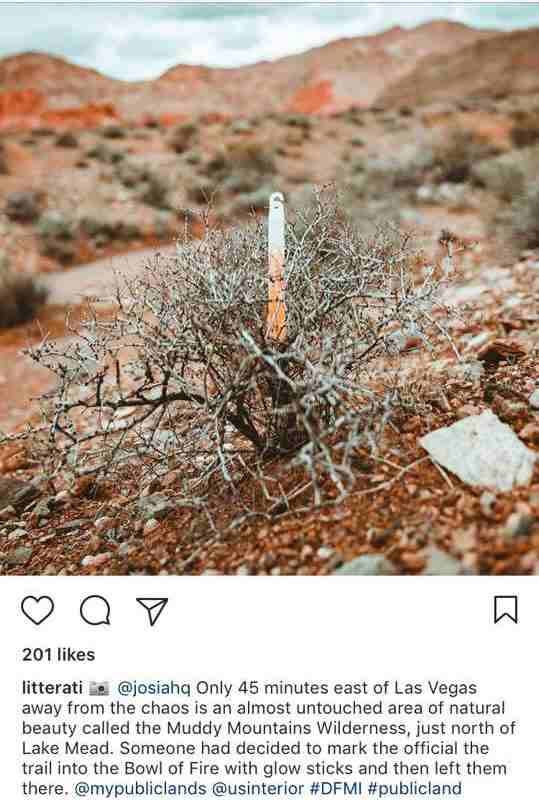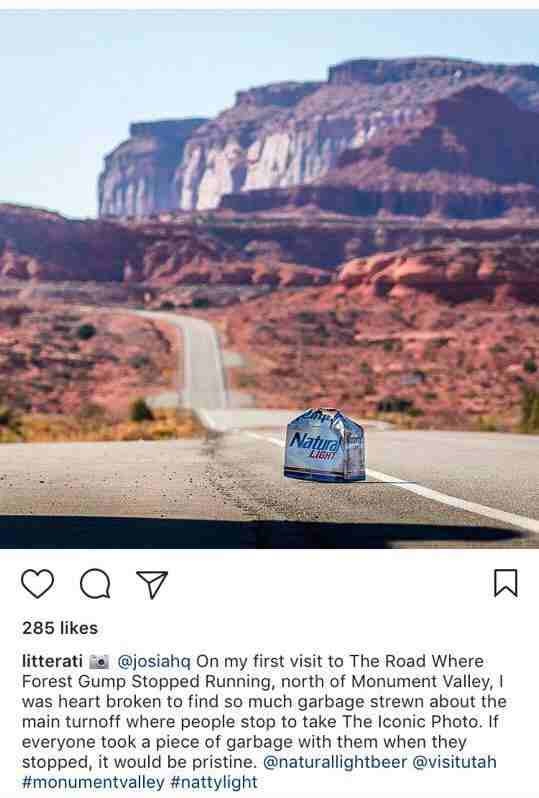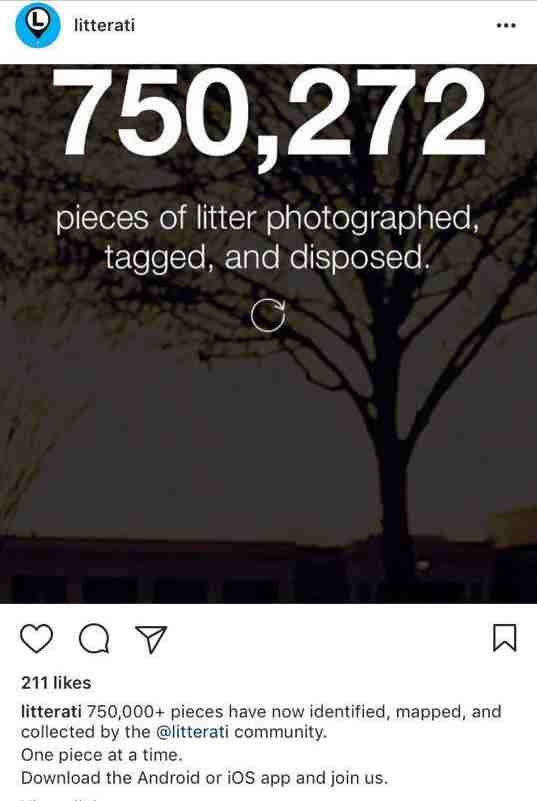
Culture
13:47, 16-Aug-2017
#Litteroftheday: Helping clean up planet Earth one Instagram photo at a time
April Espejo

Sure you have time to post your #OOTD or food porn photos every day. But ever thought about taking photos of trash and making them Instagram-worthy, while perhaps doing your good deed for the day?
The Litterati community, "a digital landfill," is doing just that for years now.
Litterati is Jeff Kirschner’s photographic, geotagging, anti-litter campaign. It's a simple enough idea: crowdsourcing data that could help stop litter from being created in the first place. The instructions:
1. Find a piece of litter
2. Photograph it with Instagram
3. Add the hashtag “#litterati”
4. Throw away or recycle the litter
According to Kirschner, it all started when he went hiking with his two kids and his daughter noticed a plastic tub of kitty litter in a creek.
“Daddy, that doesn’t go there,” says his daughter. It was an innocent but insightful comment that brought back memories of when he was a kid at a summer camp. Before visiting day, everybody would go pick up five pieces of litter and it would not take long to clean up the whole camp.

Screenshot from Litterati's Instagram account. User @josiahq shares a photo of a cigarette butt found at the Muddy Mountains Wilderness , Las Vegas, USA. / Litterati's Instagram account
Screenshot from Litterati's Instagram account. User @josiahq shares a photo of a cigarette butt found at the Muddy Mountains Wilderness , Las Vegas, USA. / Litterati's Instagram account
Why not apply that same model to the entire planet, and leverage technology to make it both fun and interesting? Kirschner started toying with his idea and one day posted a photo of cigarette butt he found in the street on Instagram.
“Pretty soon I noticed I had 50 photos of litter on my phone and I had picked up each and every piece I had shot. I was keeping a record of the positive impact I was having on the planet,” says Kirschner.
That was when Litterati was born, launched in 2012 as an Instagram hashtag.
A vision of a litter-free world
The use of Instagram made picking litter up surprisingly enjoyable, even artistic. Pretty soon, others began contributing to the digital landfill-a photo gallery of all the litter that had been picked up and properly discarded. From a hashtag, Litterati has since become its own entity, having launched an iOS app in 2016, and more recently, an Android version.
"Instagram isn't designed for creating a litter-free world," explains Kirschner in a CNN interview, "We wanted to design a user experience more aligned with our objective, and have more control over the data we were capturing and what we could do with it."
The app allows users to take photos of litter and then select the most appropriate hashtag for each one, before uploading them along with the exact GPS coordinates of each find.

Screenshot from Litterati's Instagram account. User @josiahq took a photo of a garbage he picked up against an iconic spot at the Monument Valley. / Litterati's Instagram account
Screenshot from Litterati's Instagram account. User @josiahq took a photo of a garbage he picked up against an iconic spot at the Monument Valley. / Litterati's Instagram account
A global interactive map showing every piece of litter that’s ever been uploaded in its original location is currently only available at the Litterati website and yet through the app itself.
Global database of litter
Litterati data shows that plastic is still by far the most popular type of trash, with cigarettes, paper, cans and bottlecaps rounding up the top five spots.
The most active countries are the United States, the Netherlands, the United Kingdom, Australia and Canada.
How can these data help? In a TED talk, Kirschner narrated an example where a group of 5th graders picked over 1,200 pieces of litter in their schoolyard, mostly plastic straw wrappers from their own cafeteria. The school eventually eliminated the straws at the request of students.
"There's an opportunity to connect brands with the community and with the data, helping cities get cleaner," he says.
Litterati motivates users by keeping track of their uploads and sending them special messages once they reach certain landmarks, along with information about the impact the data has in the real world.

Screenshot from Litterati's Instagram account.
Screenshot from Litterati's Instagram account.
The app now has a user base of around 20,000 users. So far, Litterati has cataloged over 750,000 pieces of litter from 114 countries, with hundreds being added every day.

SITEMAP
Copyright © 2018 CGTN. Beijing ICP prepared NO.16065310-3
Copyright © 2018 CGTN. Beijing ICP prepared NO.16065310-3